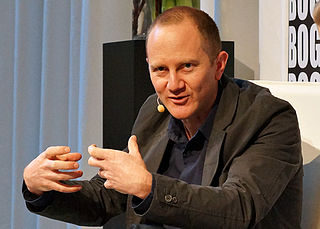A Quote by Jodi Picoult
She suddenly remembered studying the brain in science class- how a steel rod pierced a man's skull, and he opened his mouth to speak Portuguese, a language he'd never studied. Maybe it would be like this, now, for Josie. Maybe her native tongue, from here on in, would be a string of lies.
Related Quotes
Now I have been studying very closely what happens every day in the courts in Boston, Massachusetts. You would be astounded--maybe you wouldn't, maybe you have been around, maybe you have lived, maybe you have thought, maybe you have been hit--at how the daily rounds of injustice make their way through this marvelous thing that we call "due process.
She wondered whether there would ever come an hour in her life when she didn't think of him -- didn't speak to him in her head, didn't relive every moment they'd been together, didn't long for his voice and his hands and his love. She had never dreamed of what it would feel like to love someone so much; of all the things that had astonished her in her adventures, that was what astonished her the most. She thought the tenderness it left in her heart was like a bruise that would never go away, but she would cherish it forever.
Maybe she should cut the guy a little slack, [...] Maybe Thorne had been a no-show because something bad happened to him on the job. What if he'd been injured in the line of duty and didn't come by as promised because he was incapacitated in some way? Maybe he hadn't called to apologize or to explain his absence because he physically couldn't. Right. And maybe she had checked her brain into her panties from the second she first laid eyes on the man.
She opened her mouth to answer, but he was already kissing her. She had kissed him so many times—soft gentle kisses, hard and desperate ones, brief brushes of the lips that said good-bye, and kisses that seemed to go on for hours—and this was no different. The way the memory of someone who had once lived in a house might linger even after they were gone, like a sort of psychic imprint, her body remembered Jace. Remembered the way he tasted, the slant of his mouth over hers, his scars under her fingers, the shape of his body under her hands.
It was like they waited to tell each other things that had never been told before. What she had to say was terrible and afraid. But what he would tell her was so true that it would make everything all right. Maybe it was a thing that could not be spoken with words or writing. Maybe he would have to let her understand this in a different way. That was the feeling she had with him.
They crashed the front door and grabbed at a woman, though she was not running, she was not trying to escape. She was only standing, weaving from side to side, her eyes fixed upon a nothingness in the wall as if they had struck her a terrible blow upon the head. Her tongue was moving in her mouth, and her eyes seemed to be trying to remember something, and then they remembered and her tongue moved again: "Play the man, Master Ridley; we shall this day light such a candle, by God's grace, in England, as I trust shall never be put out.
Then I speak to her in a language she has never heard, I speak to her in Spanish, in the tongue of the long, crepuscular verses of Díaz Casanueva; in that language in which Joaquín Edwards preaches nationalism. My discourse is profound; I speak with eloquence and seduction; my words, more than from me, issue from the warm nights, from the many solitary nights on the Red Sea, and when the tiny dancer puts her arm around my neck, I understand that she understands. Magnificent language!
If she took Po as her husband, she would be making promises about a future she couldn't yet see. For once she became his wife, she would be his forever. And, no matter how much freedom Po gave her, she would always know that it was a gift. Her freedom would be not be her own; it would be Po's to give or to withhold. That he never would withhold it made no difference. If it did not come from her, it was not really hers.
This was something she would keep hidden within herself, maybe in place of the knot of pain and anger she had been carrying under her breastbone...a security blanket, an ace up her sleeve. She might never use it, but she would always feel its presence like a swelling secret stone, and that way when she let go of the rage, she would not feel nearly as empty.
Maybe the American Dream is too rich for us now in the U.S. Maybe we're losing it because we are not like our Swedish grandmother who came across the plains, hacked down the trees, and took the Spanish words she encountered and made them hers. Now her great-great-grandchildren sit terrified, wondering what to do with all these Mexicans. The American Dream is an impossible affirmation of possibility. And maybe native-born Americans don't have it anymore. Maybe it has run through their fingers.
I think my ideal man would speak many languages. He would speak Ibo and Yoruba and English and French and all of the others. He could speak with any person, even the soldiers, and if there was violence in their heart he could change it. He would not have to fight, do you see? Maybe he would not be very handsome, but he would be beautiful when he spoke. He would be very kind, even if you burned his food because you were laughing and talking with your girlfriends instead of watching the cooking. He would just say, 'Ah, never mind'.
Strangely, what pierced his heart and mind most sharply was not the memory of her lips under his at the ball, but the way she had leaned into his neck, as if she trusted him utterly. He would have given everything he had in the world and everything he would ever have, just to lie beside her in the narrow infirmary bed and hold her while she slept. Pulling away from her had been like pulling his own skin off, but he'd had to do it.






























